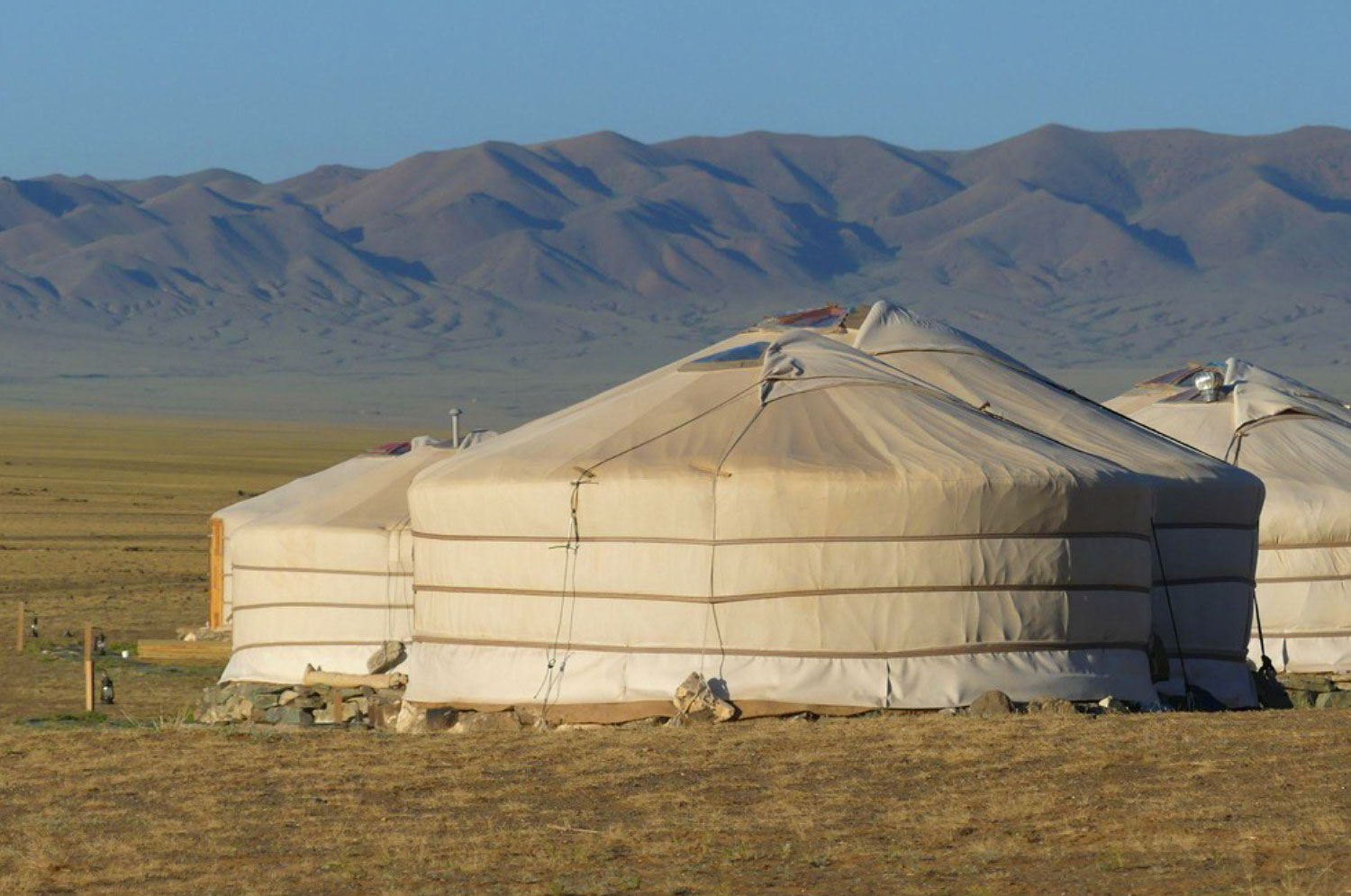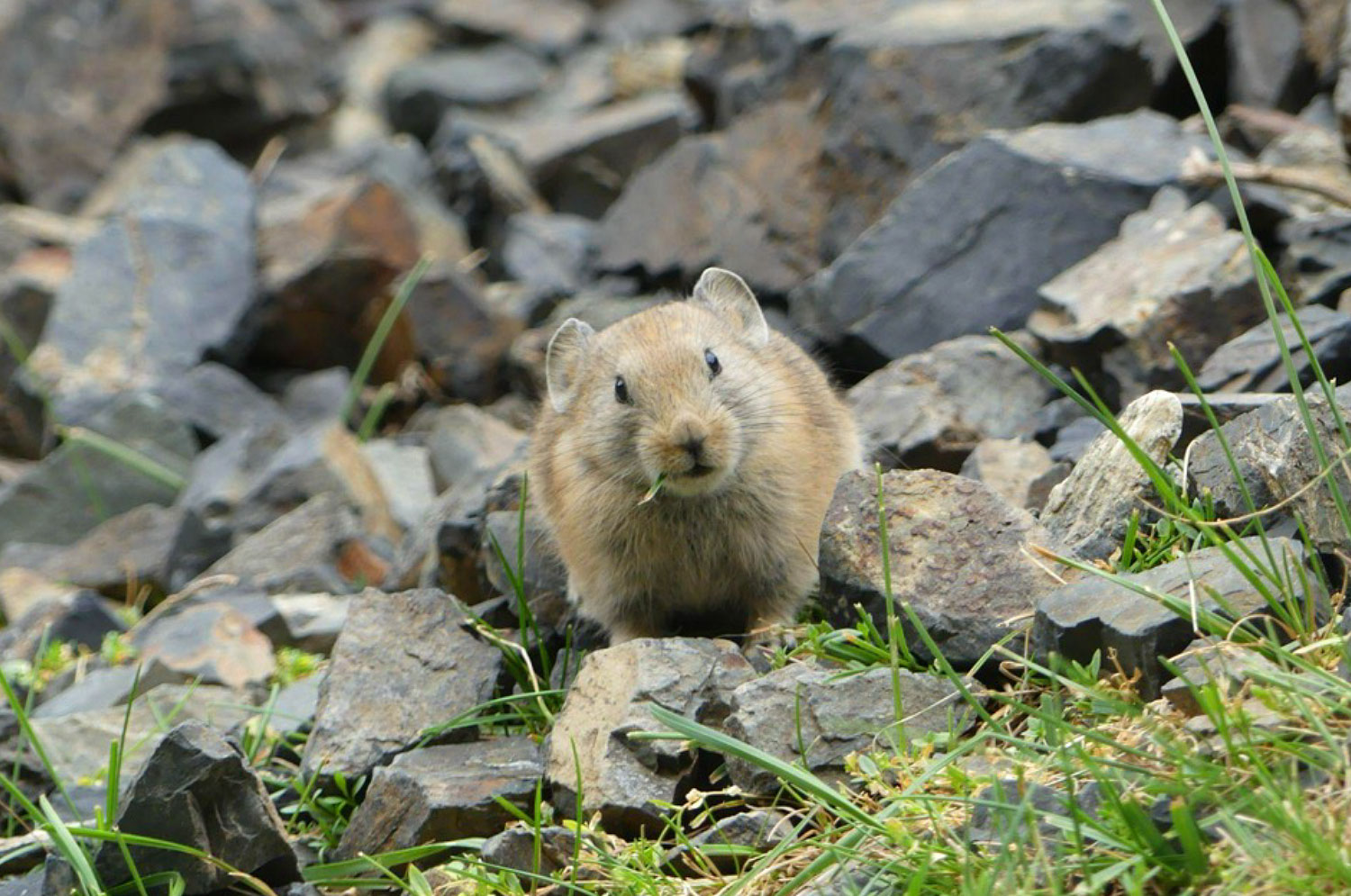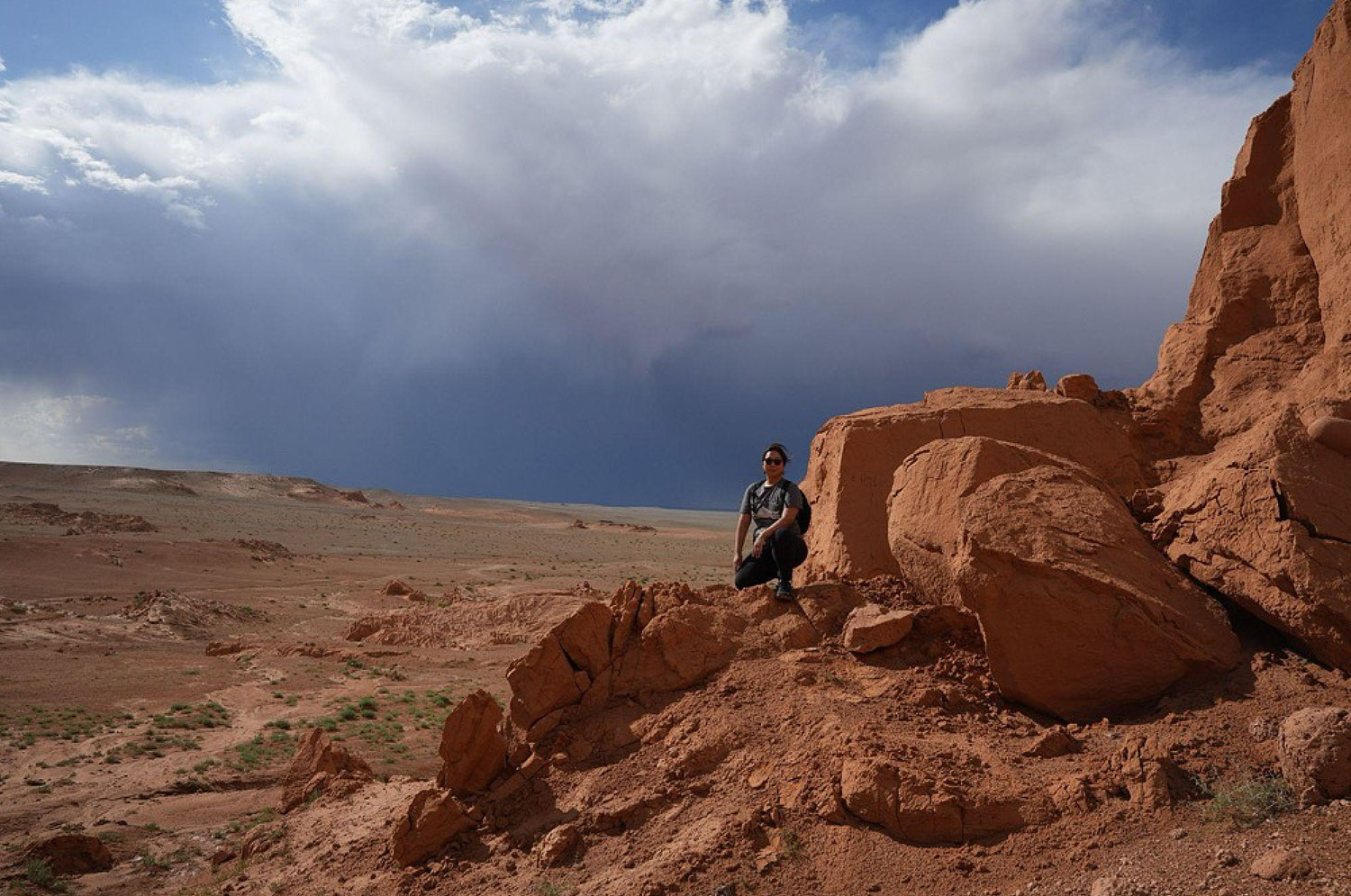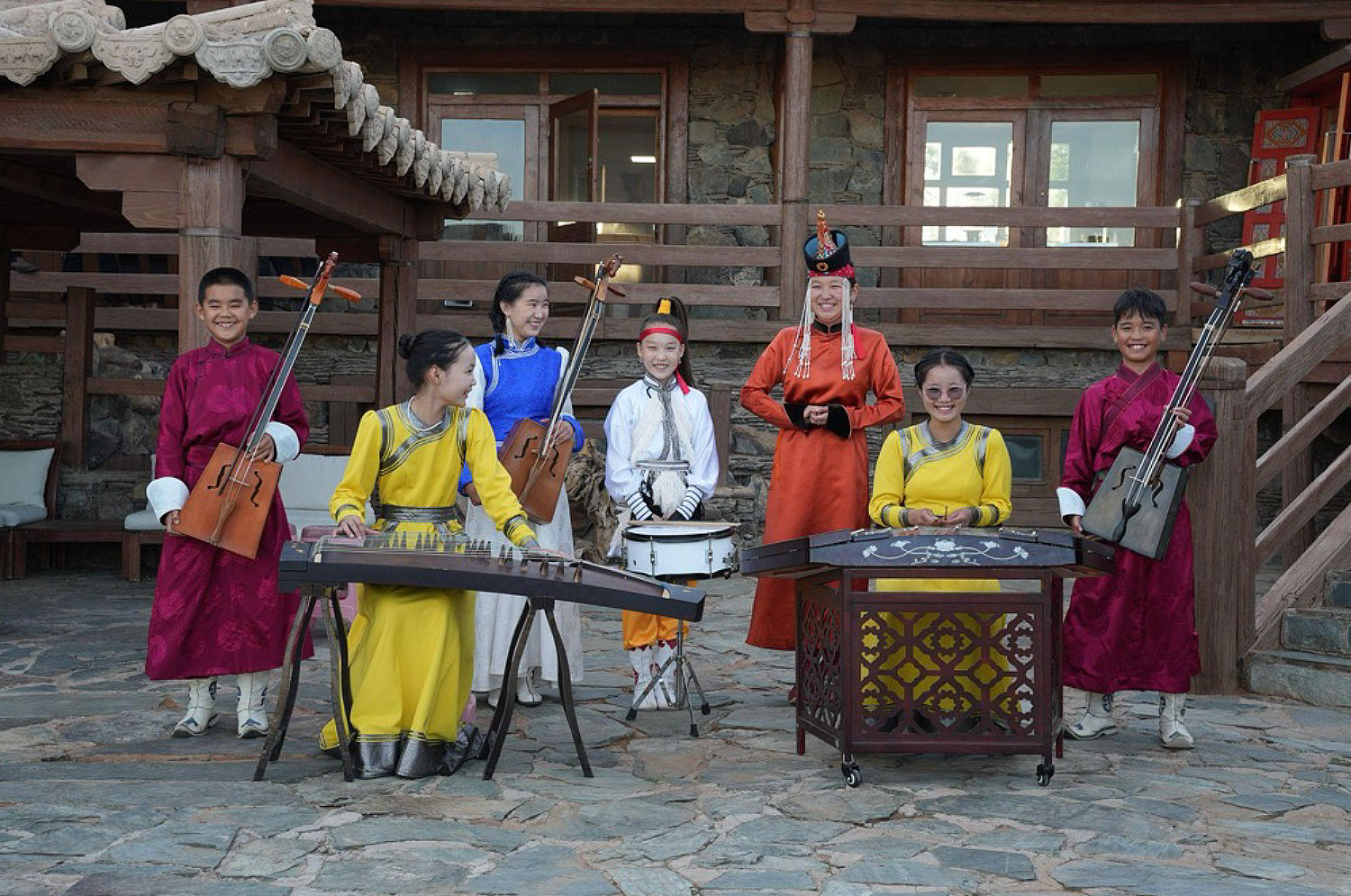Living in New York City, I often find myself longing for something beyond the daily grind, the vast, open skies of Mongolia, herds of wild yaks and horses grazing freely, and the endless beauty of the steppe stretching before me. Beyond the landscape, I longed to be in a place that would immediately feel at home, as if returning to something I had always carried within me.

My mother is Kalmyk, born in the United States. Kalmyks are Oirats from the Dzungar tribe of Western Mongolia, whose ancestral roots trace back to the Altai Mountains. Her family was among the first group of Kalmyks to immigrate to America in the 1950s. Growing up in America, I rarely saw our heritage represented in mainstream culture. Every experience where it was celebrated felt like a cultural milestone, visiting historic Kalmyk Buddhist temples in New Jersey, learning about the Venerable Geshe Wangyal, or hearing the word “Oirat” while watching Mongol, Kazakhstan’s official submission for the 2007 Academy Award for Best Foreign Language Film. Over the years, even that fleeting recognition has stayed with me, inspiring me to cofound the Kalmyk Youth Coalition, where I spent a decade organizing programs that preserved and celebrated Kalmyk history and culture. Today, I channel that same passion for cultural representation into my work as a producer and cultural consultant in film and television.

My father is Tibetan, born in Utsang, Western Tibet, in the direction of Mount Kailash, one of the most sacred places on earth. At the age of seven, he entered Phurdak Monastery, tied to the legends of Padmasambhava and the dagger he is said to have buried there. Later, he would join Nechung Monastery, the seat of the State Oracle of Tibet. From childhood to adulthood, I would sit wide-eyed, listening to his stories of life in Tibet, raising animals, living a nomadic and pastoral life, and learning about the rhythms of monastic life.

Years later, it felt like a homecoming standing in Mongolia’s Yol Valley National Park in the Gobi Desert, in the foothills of the Altai Mountains. Wild yaks grazed nearby, pikas darted through the wildflowers, and vultures circled high above, mirroring my father’s childhood tales. The land became a living bridge between his memories and my present.

Our family of five stayed at the award-winning Three Camel Lodge, an eco-luxury retreat built in harmony with Mongolian Buddhist architectural principles. Sharing this journey with my mother made it especially meaningful. I often imagine what it would be like for other Kalmyk Americans, those who, like her, grew up far from ancestral lands, to ride horses across the open steppe and be greeted by the Bankhar dogs, loyal guardians of the nomadic homesteads.

One of our favorite excursions was to Bayan Zag, the Flaming Cliffs, where the sandstone glowed fiery orange in the sunlight. My inner Jurassic Park fangirl beamed as we walked across the landscape that revealed the world’s first dinosaur eggs. I couldn’t help but imagine herds of dinosaurs roaming these same cliffs.

Evenings at Bulagtai Restaurant were a special treat. Housed in an oversized ger inspired by those of the great Khans, it offered delicious three-course meals thoughtfully prepared to accommodate our dietary needs. After dinner, we would stargaze at the Thirsty Camel Bar, named one of Asia’s top whiskey bars by Forbes.

At night, I fell asleep cocooned in a luxurious king-sized bed under a camel-hair blanket, the stars glittering above. Every morning, we awoke to the smell of a breakfast buffet, tucking away boortsog and barley balls to carry with us on our daily excursions.

On our final evening, our wonderful guide, Eda, led us to the crest of Bulagtai Hill. We raised our glasses of local beer and wine and watched the sky transform into brilliant colors spilling across the mountains. Our journey to the Gobi was more than a family vacation, it was a return, a homecoming. We hold deep gratitude for Jalsa, Undraa, Eda, and everyone at Three Camel Lodge and Nomadic Expeditions for curating and hosting not only an extraordinary trip but an experience my family will cherish forever.
Written by Dechen Kelden @youngturquoisebee
Photography by Tenzin Tasur www.tenzintasur.com

